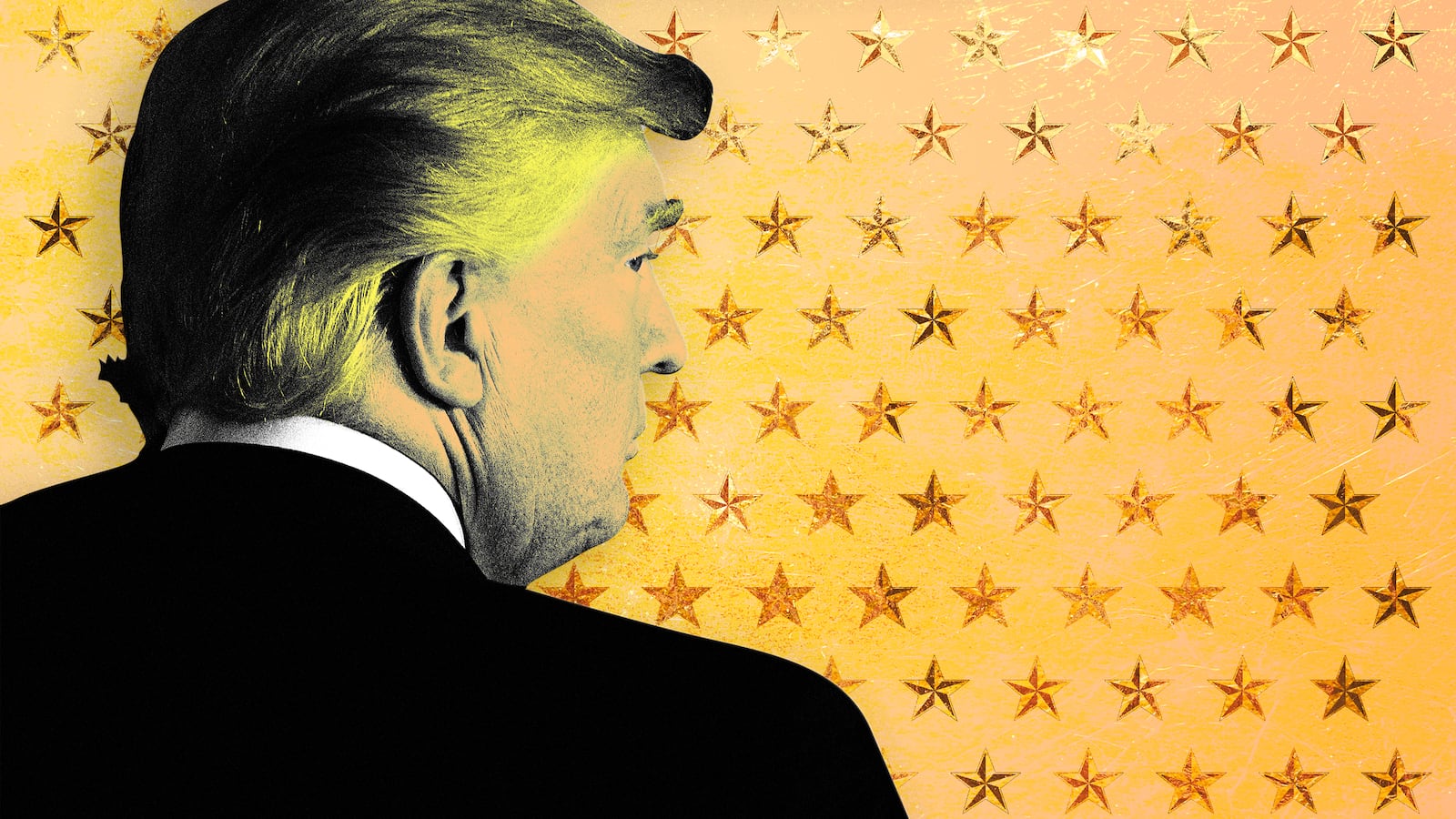President Donald Trump’s “ham-handed efforts to express condolences to the widow of Sgt. Johnson” is the product of a president “whose inability to use the English language is really without precedent in American politics,” says Andrew Bacevich.
Bacevich is no ordinary Trump critic. He is a professor of history and international relations at Boston University, a retired army colonel, a graduate of West Point, a Vietnam combat veteran, an author, and a Gold Star father.
During a conversation on Tuesday, Bacevich shared how his personal experiences informed his take on recent events.
“People have gotten the idea that presidents always make phone calls to the families of the fallen, and that’s simply not the case,” Bacevich said. “I can tell you from personal experience, that is not the case.”
I asked him about the line that got Trump in the most trouble: telling a widow that her husband “knew what he signed up for.”
“That’s a really stupid thing to say,” Bacevich avers. “I think it’s a callous and unfeeling thing to say—even though that it is true.
“I mean, it is a fact that if you volunteer to serve in the United States military, you understand that there is therefore some risk that you will lose your life or… suffer serious harm. But it’s simply utterly inappropriate to say that to a grieving widow,” he says.
What should Trump have said, instead?
“Geez, it’s not that hard. What do you say when you go through at a funeral—at a wake—and you’re speaking to the bereaved,” he continues. “What do you say? You say, ‘I’m very sorry for your loss.’ And if you knew the individual, you say, ‘Joe was a wonderful guy. If there’s anything I can do to help, let me know.’
“And quite frankly, it’s not clear to me that the grieving family cares all that much about what the president has to say, just as long as the president doesn’t muff his lines. The people who are grieving, they’re going to grieve. And to the extent that they could be consoled, they’re probably more likely to be consoled by people who are close to them, rather than some person they’ve never met who’s making a phone call from Washington, D.C.”
Bacevich worries the real question—why we have troops in Niger—is “being drowned out by the controversy over the president’s phone conversations.” Part of this is probably because it’s easier (and more profitable) for the media to cover the story about a fight between the president and a widow than it is to get into the weeds regarding a reconnaissance mission gone wrong. But it’s also true that Trump’s political adversaries have their reasons, too.
“Democrats are using Niger and the failed mission there to beat up the president for partisan reasons,” Bacevich says. “And as a consequence, the sober serious discussion of the U.S. military presence in that part of the world just somehow slides under the radar.”
Bacevich was also highly critical of chief of staff John Kelly’s recent comments, which Bacevich saw as an attempt to suggest that there are two classes of people in this country.
“There’s the class of citizens who serve in the military and who are family members of those who are serving, and that class is of a higher status than everybody else. I think that that was a contemptable thing to say.”
Like Cindy Sheehan (whom I interviewed Monday), Bacevich sees the recent controversy as important, but much less important than the larger issue of American adventurism. In Bacevich’s case, he is not comforted by the respected military leaders like Kelly, Secretary of State James Mattis, or national security adviser H.R. McMaster, serving inside the Trump administration.
“We have too many generals that are in high-ranking positions,” he warns. “The problem is not that a general or a retired general is a warmonger. I think the problem is that a general or a retired general tends to be the product of 30, 35 years of commitment, involvement in, being embedded in, a very, very particular profession that almost necessarily shapes the individuals’ worldview.”
By now, you might be depressed. But Bacevich has a solution that would potentially solve his concerns about military involvement, as well as the deep-seated problems dividing America right now. He suggests replacing an all-voluntary military force with national service.
“National service… says that everyone has a responsibility to undergo a term of service to country or community in some capacity,” he says. Not everyone would serve in a military capacity. “In serving, one would… come to an appreciation that citizenship involves obligations, as well as privileges. And also, perhaps, there would be some positive relationship in terms of overcoming the many cultural, ethic, racial, class divisions that seem to be so much part of our politics today.”
As someone who is deeply concerned about the anomie and polarization facing our nation, this sounds like perhaps one of the only ideas that could actually work.






